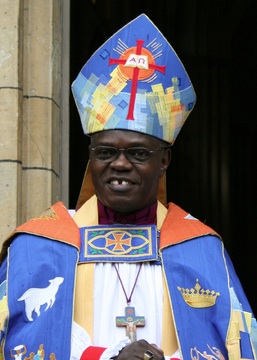| |
|
 |
Christians take eco pledges for Lent
February 21, 2012:
 |
 |
 |
Temptation: Some believers are giving up delicious desserts for Lent. Picture: Patisseriecocoa.com |
Archbishop of York, John Sentamu, has given up meat for Lent, ARC’s secretary general Martin Palmer has given up flying, and Washington Interfaith Power and Light has created an inspiring calendar of 45 eco actions, one for each day of the traditional Christian fasting period.
BackgroundDuring Lent, which runs from Ash Wednesday (February 22) until Easter Sunday (April 8), many Christians commit to fasting or giving up certain luxuries as a form of penitence.
However, many people of no faith also join in this period of abstinence to show they can exercise self-control around anything from chocolate to Facebook to being late for meetings.
It is also a time to be grateful for all the wonderful things we have – good food and good wine and other blessings – to enjoy during the rest of the year.
Christians today generally consider giving up something small that they enjoy for Lent. But in the 17th Century German monks gave up eating entirely, and survived on water – and beer. The calorie- and carbohydrate-laden doppelbock (double bock) beer was invented by Paulaner monks living in Munich to see them through the 47 day period.
 |
 |
 |
The Archbishop of York has gone vegan for Lent |
An action a dayWashington Interfaith Power & Light has published a 2012 Carbon Fast for Lent, recommending that people follow their own Carbon Fast, or choose from this calendar of suggested daily actions. “As you lay aside the calendar each day, do so with a prayer,” it recommends.
A “spiritual MOT” – no meat, or go FairtradeIncreasingly Christians are deciding to make more ecological choices of food, for Lent initially, but sometimes for the whole of the year.
* In his inaugural column in the Sun on Sunday, Archbishop John Sentamu talked about Lent as “as a spiritual MOT”. He is eating a fully vegan diet, he wrote, and urged readers to buy Fairtrade. "I think it’s important, no matter where you live in the world, that you are given a fair wage for a fair day’s work... try and buy as much as possible that has the Fairtrade logo – that way you’ll know that the person that produced it got a fair deal too. I can’t eat Fairtrade chocolate till I get my Easter Egg, but I can still eat Fairtrade fruit, and drink Fairtrade tea and juice!” The Sun on Sunday s bought by 3.25 million people.
* Last year, the leader of the Roman Catholic Church in England and Wales called for a return to the tradition of self-sacrifice and abstinence during Lent. Archbishop of Westminster, Vincent Nichols, said Catholics should give up meat on Fridays and match self-denial with increased giving to the poor.
He argued that self-sacrifice during Lent could help people cope with their busy lives. Archbishop Nichols acknowledged that the increased pace of life has left less time for spiritual practices, but he insisted that self-denial and reflection could actually help people cope with stressful lives.
In a BBC interview he said he always gave up alcohol during Lent and while such abstinence was ‘essentially a spiritual exercise’ there could be ‘a lot of other benefits to it’, such as losing weight. ‘And I think you will find you get a better balance,’ he said. ‘When we make space for God, we get a bit more peace ourselves and there's more space for others as well.’
Why is vegetarian more eco-friendly?Livestock farming is responsible for the majority of the 22% of carbon emissions generated by agriculture worldwide. Reducing your meat and dairy consumption is one of the most important steps you can take in adopting a more planet-friendly diet.
Worldwide, 60 billion animals are farmed for food every year, according to Compassion In World Farming, and most of them are reared in intensive systems that seriously impact their welfare and quality of life.
That's why the Christian Vegetarian Association UK is urging people to adopt a vegetarian diet during Lent as a way of identifying with not only Christ’s suffering, but that of creation. It says a vegetarian diet has a great deal to contribute, not only to animal well-being but also to human health, poverty reduction and the environment.
Giving clean water for LentThis year the British Government is matching Give It Up! Lent donations to Cafod (the official Catholic aid agency in England and Wales) pound for pound. The money will be spent on providing clean water in poverty-stricken communities around the world.
Andrew Mitchell, International Development Secretary, says: ‘CAFOD is working to improve water access, sanitation and hygiene for some of the world's most vulnerable and neglected people… It is potentially life saving work, tackling cholera, helping girls attend school rather than having to fetch water and ensuring that children know about hygiene and waterborne diseases.'
Giving up flying for LentARC is an international charity with partners and funders from all around the world. Although we have reduced our flights considerably since the carbon emissions of flying became clear, we do still need to travel to be effective. However our secretary general Martin Palmer has given up flying for Lent.
Links 2012 Carbon Fast for Lent
Veg4Lent
Archbishop Nichols's call
Compassion In World Farming
Cafod
|
 |
 |
|
|
|
|
|
 |
What does Christianity teach about ecology?
The basic environmental beliefs of Christianity. |
 |
Faith in food
Faith in Food is about people of faith honouring their values in the food they eat. Food has always played a central role in religious life – in worship and celebration, through foods that are sacred, prasad or forbidden, and in communion and Passover, Ramadan and harvest festivals. |
 |
Projects overview
A complete listing of all current ARC projects |
 |
 |
|
|

